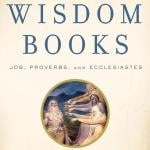Reflecting on our culture’s penchant for remakes in the NYTBR, James Parker traces the phenomenon to a “commercial factor here: the enormous built-in timidity of the culture industry, which will always be happier with a remake than a new thing. Once youve assembled a hero, a hero that works, you should keep using him. Those weird 70s movies about nobody in particular, with bad lighting and sort of a bummed-out feel at the end who wants to watch them anymore?”... Read more



















